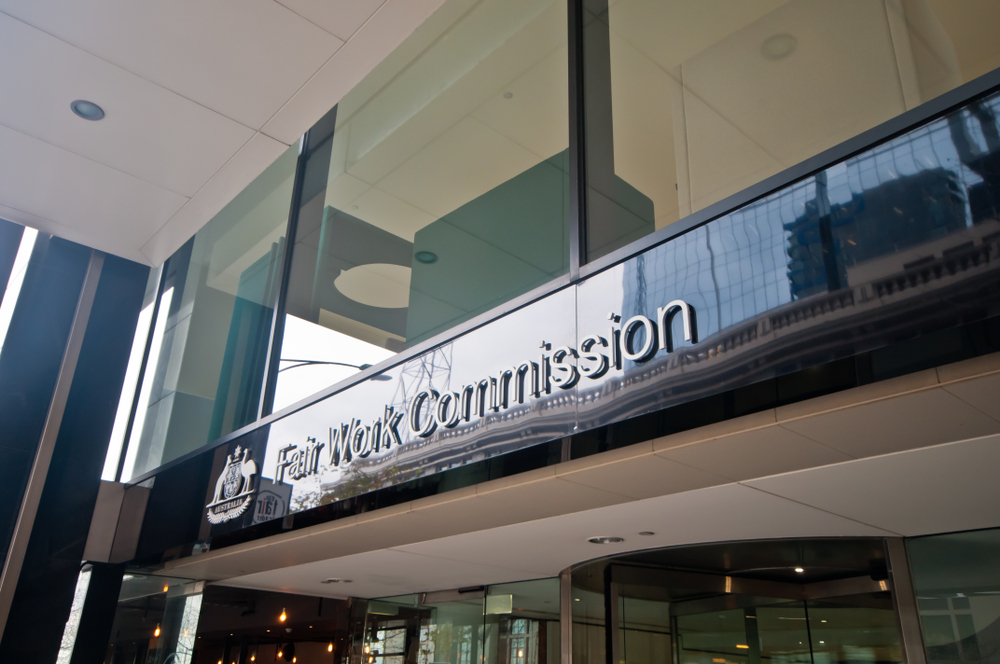AREEA calls for FWC reform amid surge in workplace claims

Australia’s resources and energy employer group has urged the Federal Government to take urgent action to reform the Fair Work Commission (FWC), citing performance concerns amid a surge in workplace claims.
This follows significant increases in case load for the FWC in recent years.
In an address to the Tattersalls Club Workplace Relations Group in Brisbane, AREEA chief executive Steve Knott warned that the Commission is ‘drowning in employee claims,’ pointing to data showing unfair dismissal and general protections cases have surged between 20-50% in the past year.
According to data from the Fair Work Commission, as of July 2025 total lodgments are up 22% compared to July 2024. Lodgments are 52% higher than the July three-year average.
General protections involving dismissal are up 45% and other general protections disputes are up 91% in this period.
If this trend continues, the FWC says it will reach 55,000 applications for FY26.
Despite the growth in cases, the Commission has met the timeliness benchmarks notwithstanding the degree of change resulting from legislated reform and additional workload, according to the FWC.
Of just over 43,000 matters finalised in FY25, 50% were finalised within 5 weeks and 90% were finalised within 12 weeks, according to the commission.
While the FY25 annual report has yet to be released, the FWC’s FY24 lodgment total of 40,190 marked a 27% increase from the prior year. In FY24, the FWC finalised 39,196 matters with a clearance rate of 97.5%.
“The Commission is drowning in employee claims. And it’s no mystery why,” Mr Knott said.
“The unfair dismissal system, as it currently operates, actively encourages litigation. Members of the Commission are finding otherwise lawful and procedurally sound terminations to be ‘harsh, unjust or unreasonable.’ And then they’re either reinstating the employee or awarding compensation.”
2025 saw a number of changes for employment law. Notably for the mining industry was the FWC’s ruling which captured BHP ’s (ASX: BHP) operations services under the Federal Government’s Same Job, Same Pay legislation, ensuring labour-hire workers are paid the same wages and conditions as BHP’s directly employed staff.
The law, implemented by the Federal Government in 2024, was designed to address the wage disparity seen across the Australian resources sector, which sees labour hire staff earning substantially less than directly employed workers in identical roles.
At the time of the ruling, the Australian Council of Trade Unions (ACTU) found that about 2200 employees could be impacted by the ruling, seeing an average annual salary increase of $30,000.
While the decision garnered support from government, it drew criticism from industry, including the Minerals Council of Australia.
“The current government has added multi-employer bargaining, labour hire ‘same job, same pay’ laws, intractable bargaining determinations and now an entire new framework of union delegate rights,” Mr Knott said.
“They have put all sorts of spin on each of these measures so they might sound noble on the surface — promoting ‘job security’, ‘closing loopholes’, ‘lifting wages’ and so forth.
“But together they simply entrench bureaucracy, add enormous layers of new unproductive red tape and remove choice and flexibility.”
Mr Knott points to further growth in the Commissions functions since the Albanese Government took office, with paid family and domestic violence leave, proposals for paid reproductive leave, regulation of gig economy platforms and the right to disconnect coming under fire.
“In summary, these are not productivity reforms. These are social engineering and social justice objectives disguised as industrial law,” he said.
“AREEA’s members have had no issues with the right to disconnect and of the small handful of matters that have come before the FWC, none have had any merit.
“What a complete waste of time for Australia to debate this for months as some sort of important IR reform and to provide another avenue for vexatious litigants for the FWC to deal with.”
Rolling out reforms
To address the rising case load, Mr Knott today unveiled two key reform proposals aimed at strengthening governance and improving performance at the national workplace relations tribunal.
“AREEA is calling for a new, tripartite appointments process involving the Minister, the ACTU and business representatives to ensure FWC members are chosen on merit, skill and real-world experience,” he said.
“This would return balance, transparency and public confidence to the appointments process, which has become far too politicised.”
Mr Knott also called for the statutory retirement age of FWC members to be lifted from 65 to 70, in line with the Federal Court.
“Having 65 as the FWC member age of senility is simply outdated and absurd,” he said.
“We need continuity and expertise, not an arbitrary age limit that forces out capable members. Even the current FWC President, who is a Federal Court judge, will be statutorily barred from continuing at the Commission beyond 65.
“It makes no sense to lose experienced, competent tribunal members at 65 when the scope and workload of the Commission have expanded dramatically.”
Mr Knott says urgent reform is needed for both the unfair dismissal and general protections systems.
AREEA’s proposed fixes include:
- Refocusing unfair dismissal law on fair process, not subjective views of ‘harshness’
- Tightening the general protections regime by removing the reverse onus of proof, introducing a reasonable statute of limitations, and capping compensation
- Raising the application fee for all employee claims from $89.70 to at least $500 to discourage frivolous filings.
“Right now, the incentive to lodge nuisance claims or extract settlements is enormous,” Mr Knott said.
“Employers are often forced to settle not because they’ve done anything wrong, but because the cost of defending themselves in court is astronomical. That’s not justice – it’s extortion dressed up as industrial law.”
The FWC says it will shortly introduce a range of procedural reforms in relation to general protections dismissal applications, which formed 14% of lodgments in FY25 and is one of the largest growth areas in the Commissions workload.
According to the FWC, about two-thirds of applications are made by individuals who do not meet the qualifying period for unfair dismissal.
This paired with the Federal Court decision in the Milford v Coles Supply Chain — which requires the FWC to determine whether a dismissal has occurred and whether the applicant is an employee at law before holding a conference — places additional strain on resources, as the Commission must now have a one or two-day hearing and issue a written decision merely for the purpose of holding a one or two hour-conference.
The new reforms from the FWC will involve new, more rigorous application and response forms; capacity to decide and dismiss extension of time applications which do not have reasonable prospects of success without requiring employer response; more rigorous approach to the allowance of representation at general protections conciliation conferences; clear notices to parties as to the nature of conciliation conferences; shorter conferences; and termination of conferences if both parties do not wish to enter into a settlement.






















